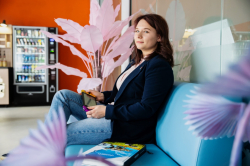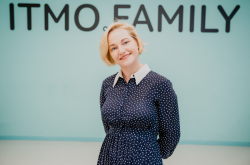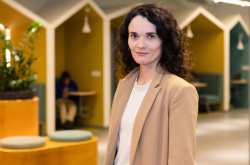Debate and insights
Held for the second time, the online course included a debate between the EduStars contest winners Alexander Mayatin, associate professor at the Faculty of Information Technologies and Programming, and Alexandr Kapitonov, dean of ITMO’s Faculty of Infocommunication Technologies. The moderator of the debate was Darya Chirva, head of ITMO's Critical Thinking module and a winner of the EduStars contest. The participants discussed new educational models, as well as the pros and cons of student-centered learning.
Alexander Mayatin believes that personalizing education should not be narrowed down to individual learning tracks. In his opinion, the individual approach is fundamental to enhancing the knowledge of students. On the topic of choice, the speaker expressed concern that students, because of their age, are not yet fully ready to make conscious decisions. They should be mentored along the way and gradually prepared for new opportunities.
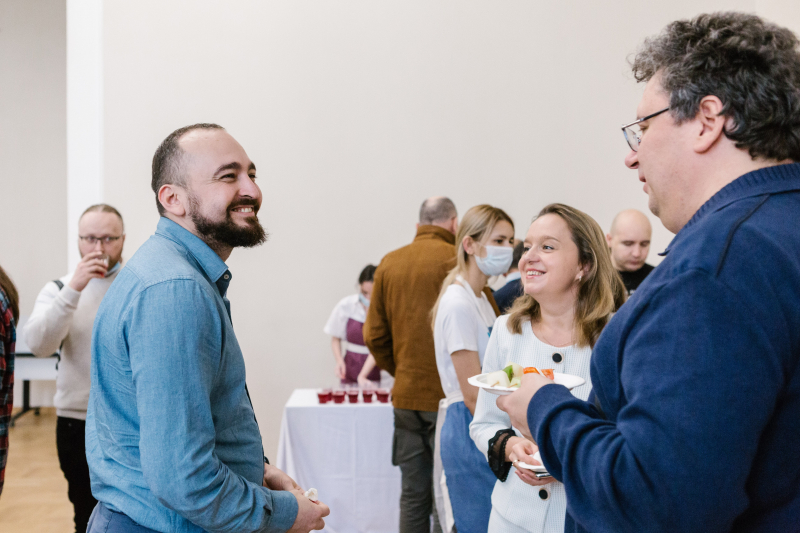
Alexandr Kapitonov. Photo courtesy of Maria Bakina, Megabyte Media
Alexandr Kapitonov, in turn, noted that motivation plays a vital role in learning. The key task of the university is to help motivated students fully unleash their potential by, among other things, providing an opportunity to adapt their studies to their needs.
“This was quite a contentious debate. It’s hard to confront a person who has years of experience, case examples, and statistics over the past few years when your only tools are ideas and projections. The key difference lies in how we see students from the very beginning. Do we think of them as followers or leaders? I think that, in many ways, it is a decisive factor. Young specialists keep evolving, and our main mission is to help them make the right decision that will benefit their future,” explains Alexandr Kapitonov.
The debate marked the start of a 5-day online course full of various lectures and workshops. ITMO’s greatest specialists elaborated on technologies in professional communication, popular teaching practices for student-centered learning, and the specific features of this year’s learning process. The participants were most impressed by the special session on the opportunities for educators: online courses and advanced training from ITMO University, ITMO.Expert, and ITMO’s Staff Support Office, English classes, corporate events, sports clubs, mentorship, and others. Some of the participants didn’t know that scooters were free for teachers, too, and were very pleasantly surprised.
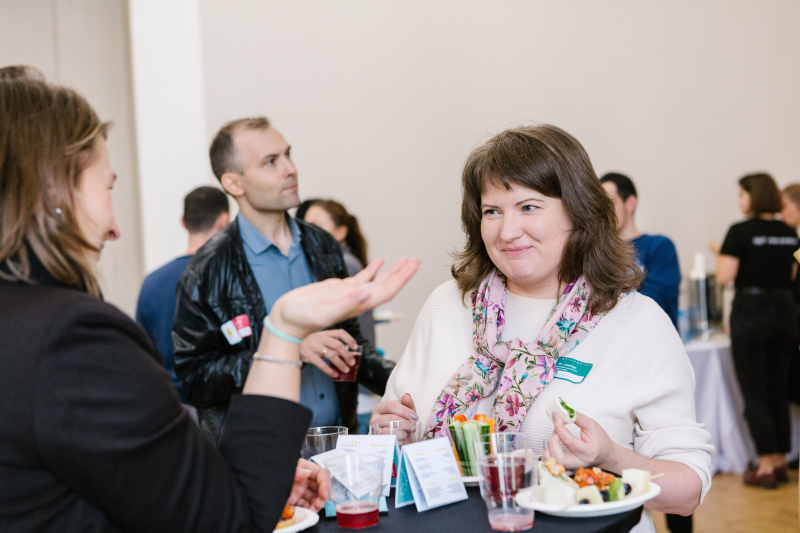
Anastasia Pavlova. Photo courtesy of Maria Bakina, Megabyte Media
Traditionally, the participants got to meet Anastasia Pavlova, associate professor at the Faculty of Biotechnologies, who shared her experience on how to organize work and research with Master’s and PhD students. Dr. Pavlova believes that a good leader should think about two main things: people and money. Each person should be in the right place and have the resources they need.
“Supervisors must inspire students towards scientific breakthroughs! But it’s not enough to simply inspire and motivate young scientists, we should help them bring their ideas to life through various contests and grants, business partners, and even consortia. We must create a favorable and productive environment for research,” shares Anastasia Pavlova.
The course ended with an incredible talk by Alexander Boukhanovsky, head of the School of Translational Information Technologies, who spoke about digital avatars, minions, pokemon, and how artificial intelligence can fight laziness. His presentation was about information technologies and their impact on human life.
From minimum to a maximum
Participants could choose one of the four proposed tracks: minimum, medium, or maximum (in two parts). The first track was specifically designed for those teachers who wanted to gear up for the new academic year. The second one allowed participants to take part in separate events, and the third and fourth were for the most active participants ready to do assignments and create group projects.
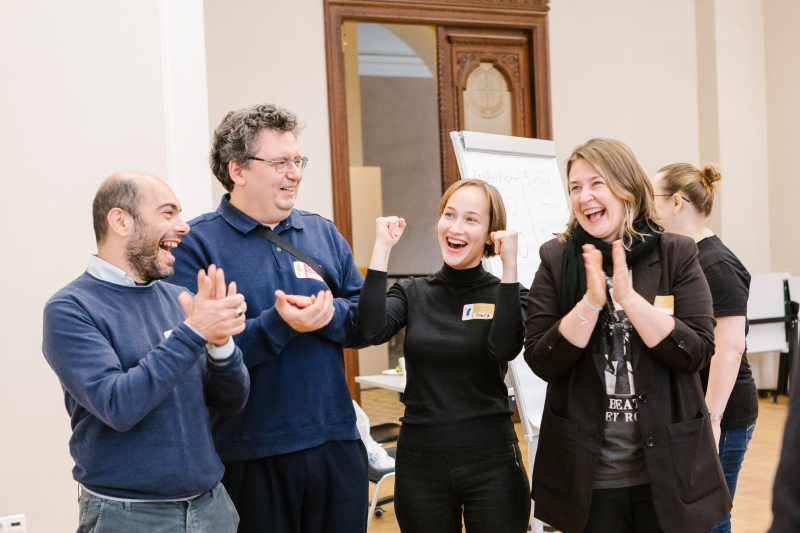
The official closing ceremony of the ITMO.Expert project. Photo courtesy of Maria Bakina, Megabyte Media
“When planning each course, we had to pay special attention to our colleagues’ needs and interests in the educational process. The key theme of this year’s course was personalized education and its technologies. Education can and should be personalized not only for students but for teachers, too, and this is the idea we tried to convey in our course,” says Olga Eliseeva, head of the Department of Educational Quality Assurance.
The participants of the fourth track had the chance to conduct 30-minute long classes that were created collaboratively during the entire course. There were various interactive and personalized projects: while some of them focused on boring things that must be taught to students in science, others guided educators on how to have a personalized class after knowing the students for only 20 minutes.
“The course was extremely diverse. There were outstanding professionals from various fields who shared their experiences and offered handy and time-tested practices. And now we’re free to be creative with how we want to apply this knowledge in our work. It gave us something to think about,” comments Anton Boitsev, associate professor at ITMO’s Faculty of Control Systems and Robotics.
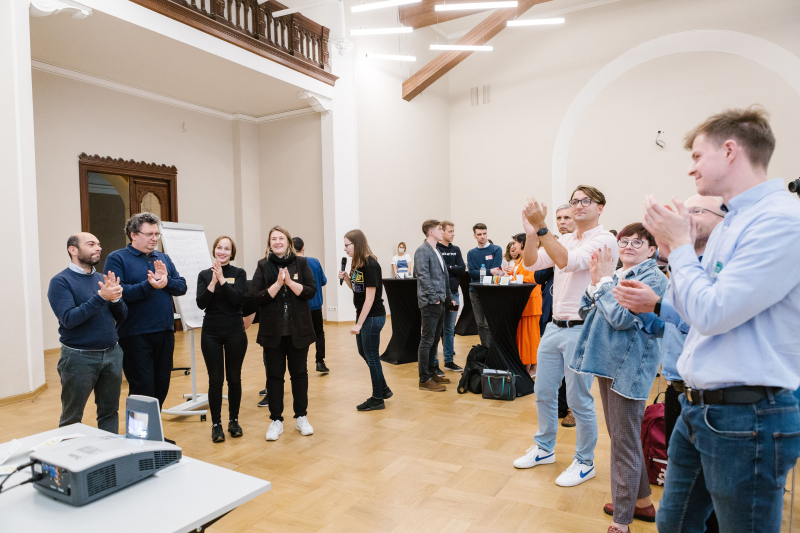
The official closing ceremony of the ITMO.Expert project. Photo courtesy of Maria Bakina, Megabyte Media
“It’s a great way to start the new academic year!” notes Galina Gornova, associate professor at ITMO’s Institute of Design & Urban Studies.
The full live streaming and detailed programs of workshops and courses can be found on the official website.
This article is prepared by ITMO.NEWS together with Kristina Krushinskaya, lead engineer at ITMO’s Office of Educational Technologies, and Anastasia Pozdnyakov, teaching and learning specialist at ITMO’s Office of Educational Technologies.


